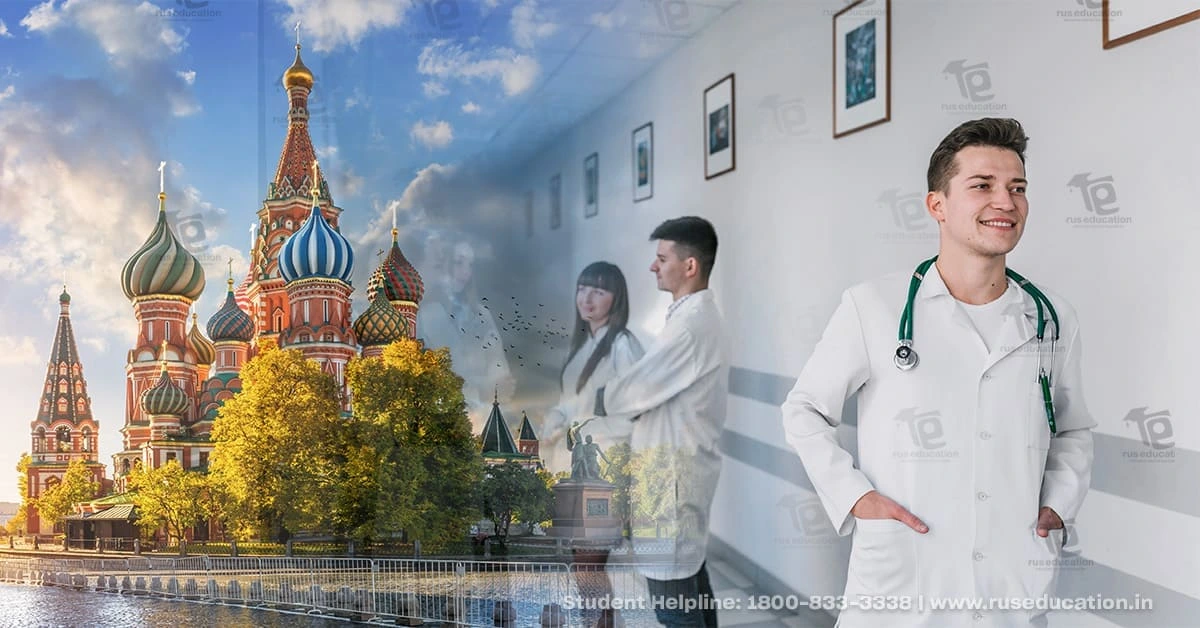Common Hurdles and Solutions for Indian Students Studying MBBS in Russia
Pursuing medical education in Russia has become a popular choice among many Indian students due to the high-quality education, affordable fees, and global recognition of Russian medical universities. However, moving abroad to study medicine also comes with its own set of challenges, students need to adapt to a new culture, language, and educational system. Here, we’ll explore some of the most common hurdles Indian students face while studying MBBS in Russia and offer practical solutions to overcome them.
1. Language Barrier
Challenge: While many top medical universities in Russia offer courses in English, interactions outside the classroom, like day-to-day communication with peers and other locals and hospital training, may often occur in Russian. This language gap can make it difficult for Indian students to interact confidently with patients, faculty, and locals.
Solution: Today, with the increasing demand for international students to pursue higher education in Russia, most universities provide introductory Russian language courses to help international students develop a working knowledge of the language. Several activities such as engaging in regular practice, joining language exchange groups, and immersing oneself in the culture can speed up the language learning process.
2. Cultural Adjustment
Challenge: For Indian students who choose to pursue MBBS in Russia, adapting to a different cultural environment is often challenging. Russia has a unique culture with distinct social norms, festivals, and lifestyles that may differ significantly from what Indian students are accustomed to.
Solution: Participating in university events, engaging with local students, and exploring Russian history and traditions helps students embrace the new culture with an open mind. These experiences make the transition easier but also enrich students’ understanding of global cultures, which is an asset for future medical professionals.
3. Weather Conditions
Challenge: Russia experiences extreme weather conditions, particularly in winter. The cold temperatures can be overwhelming for students from warmer climates like India.
Solution: To cope up with the harsh Russian winter, invest in appropriate winter clothing and learn how to adapt to colder weather. Medical universities in Russia encourage students to participate in indoor recreational activities to maintain a healthy lifestyle, stay active, to remain positive and warm during the colder months.
4. Academic Rigor
Challenge: The MBBS curriculum in Russia is rigorous, requiring students to stay committed and disciplined throughout their academic years. Although the academic approach may differ from the Indian system, especially in terms of examination and practical training, the entire curriculum is designed to meet International standards.
Solution: Many top medical universities in Russia have academic support centers, mentorship programs, and study groups to help students stay organized and seek help from professors or senior students if needed. Utilize these resources to stay on top of coursework and adjust to the teaching style.
5. Homesickness
Challenge: Homesickness is a common struggle for every individual, particularly during holidays, festivals, or any occasion that involves being away from home.
Solution: While being away from home, try to stay connected with family and friends through regular video calls, and ensure that you participate in student groups or associations that celebrate Indian festivals. Top medical universities in Russia have Indian student associations that host cultural events, which can help alleviate homesickness and create a sense of community.
6. Financial Management
Challenge: Students can find managing finances in a foreign currency and budget challenging. Despite being affordable compared to other countries, living expenses in Russia still require careful budgeting.
Solution: Create a monthly budget that helps track all the expenses. The universities in Russia offer affordable housing options, however, students can also consider looking for shared accommodations outside of the university. Take advantage of student discounts on public transport and other amenities, and always set aside an emergency fund for unforeseen expenses.
7. Preparation for FMGE Exam
Challenge: After completing MBBS from Russia, Indian students need to clear the FMGE exam to practice medicine in India. Preparing for this exam, while staying focused on university studies, can be demanding.
Solution: Start preparing for FMGE early on by setting aside some time each week for focused study. Many universities offer coaching sessions for this licensing exam, and students can also enroll in online programs or study groups for added support.
Final Thoughts
Studying MBBS in Russia may come with its challenges but it offers a rewarding, enriching, and transformative learning experience for medical students. With proactive planning, adaptability, and resourcefulness, Indian students studying MBBS in Russia can navigate through all the obstacles successfully and make the most of their education abroad.
➨ Read Latest Blogs: Achieve Global Recognition: Perks of Studying MBBS in Russia in English





1 Comment
Comments are closed.